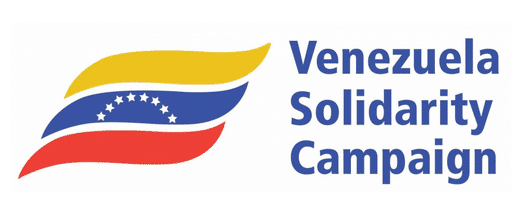
Introduction
Venezuela goes to the polls again on N21ovember in ‘mega elections.’ The dialogue that began in late summer between the Venezuelan government and sections of the hard right-wing opposition had been going well, with some definite outcomes. These include the decision by some right-wing opposition parties that have boycotted elections for years to take part in the elections.
But the US’s illegal extradition from Cape Verde of Venezuelan diplomat Alex Saab, who was en-route to Iran to broker a trade deal to bring fuel, food and medicines to Venezuela, has threatened to sabotage both the talks, as the US did before in 2018 and 2019, and the elections.
What elections are being held on 21 November?
The regional and municipal elections being contested on 21 November are for the posts of state governors, mayors, regional legislators and local councilors, totaling 3,082 elected positions.
Over 70,000 candidates from 111 political parties will be taking part, so competition for each post is extensive. Campaigning formally began on 28 October, trying to attract the votes of the 21,159,846 Venezuelans on the electoral roll.
This is the 29th electoral process to be carried out in Venezuela since Huge Chávez won the presidential election in 1998.
Who is participating?
What is different from the elections held since 2015 is the extent of participation by opposition parties.
President Maduro’s party, the PSUV (United Socialist Party of Venezuela), has only one candidate for each of the 3,082 elected positions (except for the candidacies of the state legislative councils, in which alternative candidates have also been designated). In opposition to the PSUV, over 66,000 candidates are being sponsored by different right-wing opposition organizations. The remaining candidates come from other organizations in the Great Patriotic Pole alliance led by the PSUV.
This is a significant change. Most right-wing opposition parties boycotted the previous governor and municipal elections, held in October and December 2017, respectively. The National Assembly elections in December 2020 were boycotted by a swathe of US-backed right-wing opposition parties making up the Democratic Unity Roundtable coalition, urged on by self-proclaimed “interim president” Juan Guaidό.
However, a host of other, more moderate, opposition parties broke ranks and urged Venezuelans to take part in those 2020 elections. Of the 107 organizations putting up candidates, 98 were opposition political parties, five of which won seats.
The participation of these more moderate opposition parties came about through a process of dialogue with the Maduro government which led to improvements made by the National Electoral Council (CNE) which organizes the elections and to the electoral guarantees governing the electoral process. Following further dialogue, in May 2021 a reconstituted National Electoral Council now has two opposition members among its five-person board.
The more moderate opposition parties, the so-called Democratic Alliance, which announced in May a joint list of candidates for the November elections, will be contesting for votes against another coalition of opposition parties known as G4 or the Unitary Platform, including the Popular Will party.
It is unclear where exactly this leaves self-declared “interim president” and coup plotter Juan Guaidó, of the Popular Will party, who is fading fast as he faces mounting disapproval by his former extreme right allies over his mishandling of appropriated Venezuelan state assets.
How ‘free and fair’ are Venezuelan elections?
Although you would not know it from the US’s constant demand for ‘free and fair elections’ in Venezuela, the country has an automated system that is most audited in the world. In all, sixteen audits of the process are conducted from beginning to end, in the presence of representatives from participating political parties.
Coupled with biometric identification being required to vote and automated voting throughout, this means that rigging election results is technically impossible in the Venezuelan election system.
On media access in this election, the CNE President has reminded TV stations, radio networks, and public and private printed media of their shared responsibility to help publicise the full range of political programmes on offer to voters in the elections.
CNE officials and representatives of the public and private media met on 26 October before campaigning started and agreed that all participating political parties were entitled to wide visibility during the campaign.
The government’s Minister for Information and Communication has also said that all state-owned public media in the country is at the disposal of the 70,000 plus candidates from the participating political parties to explain their proposals.
Which organizations are sending international observers?
International observers teams from multilateral organizations such as the Council of Latin American Electoral Experts (CEELA), the Caribbean Community (CARICOM) and African Union, which customarily attend Venezuela’s elections, will again do so.
But for these elections, the EU and the Carter Center have also accepted the invitation that the Venezuelan government always extends to send a team of observers. The Carter Center has signed a memorandum of understanding to guarantee the impartiality and objectivity of the election observation mission for the November elections.
Given the extent of external observation of these elections, it will be important for all parties to recognize the results, whatever the outcome, once they are officially announced by the Electoral Authority (CNE). President Maduro has already made a commitment to do so on behalf of the PSUV.
Beyond the elections, it is vital that the existing dialogue process between the PSUV and opposition parties is maintained, to cement gains already made and to continue to make advances. The critical factor here will be whether the US government backs off to allow these negotiations to run unhindered, or whether it seeks – as it has done in the past – to disrupt their progress, starting by not recognizing the results but also by intensifying its illegal sanctions.
Related posts:
Views: 0
 RSS Feed
RSS Feed

















 November 21st, 2021
November 21st, 2021  Awake Goy
Awake Goy  Posted in
Posted in  Tags:
Tags: 
















